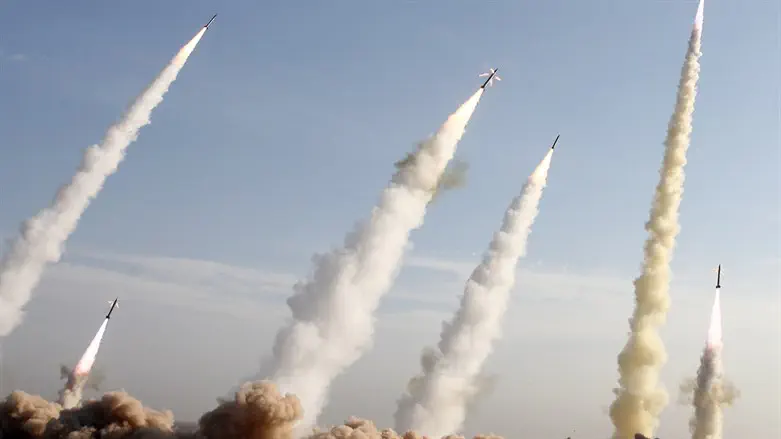by Israel National News
Iran boasts its new advanced weaponry, while hackers improve control over networks across the Middle East.
 |
| Iranian missiles Reuters |
Iran asserts it has stationed missiles nationwide capable of dodging American defense systems.
As reported by Iran International, the country this week unveiled a new ballistic missile named Qasem Basir, with a range of 1,200 kilometers, and warned that American military bases across the Middle East fall within its scope.
According to the publication, that was reported in Globes, Iran’s Defense Minister Aziz Nasirzadeh stated the upgraded missile, powered by solid fuel, was engineered to circumvent modern air defense systems—particularly the American THAAD system, which was recently installed in Israel.
Nasirzadeh declared on Iranian state TV that the missile’s improved technology allows it to breach high-level air defenses. He offered a stark projection: “With the latest upgrade, Israel will intercept no more than five out of 200 missiles.”
Directing a message toward Arab nations hosting U.S. troops, Nasirzadeh clarified, “We hold no animosity toward our neighboring nations—they are like sisters—but US military installations are our targets.”
The Iranian article notes that Qasem Basir missiles have already been placed across Iran’s hidden missile bases, signaling preparation for potential regional conflict escalation.
For over two years, Iranian hackers managed to operate unnoticed within critical infrastructure networks across the Middle East. They monitored, collected data, and embedded themselves deeply, navigating security layers without interference. These findings were disclosed in a thorough Hacker News investigation.
Investigators claim the objective was to access the physical control systems—the same systems that run utilities like water and electricity facilities.
“This cyber campaign is among the most complex ever discovered in the region,” noted security professionals at Fortinet, the company that released the investigation’s detailed report.
The hackers, identified as the Lemon Sandstorm group, not only infiltrated but continuously adapted their tactics, upgraded their arsenal, and learned to bypass every defense. Fortinet said the Iranian operatives created multiple access points—“backdoors”—so that if one was blocked, another would be used.
Israel National News
Source: https://www.israelnationalnews.com/news/407871
No comments:
Post a Comment